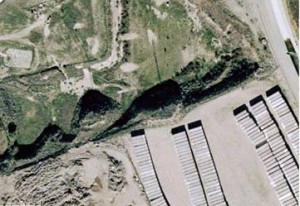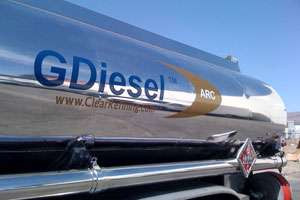There is a surge of new diesel vehicles entering the U.S. market place in response to the need for better fuel economy along with lower fuel emissions. The diesel industry has been promoting low diesel fuels, and in some cases, diesel fuel has been labeled an “advanced fuel.”
 For example, Rentech has created a diesel fuel called RenDiesel that can be produced using a variety of sources ranging from biomass to natural gas. The company has proposed building a renewable energy center in Rialto, Calif., that could produce approximately 640 barrels a day of synthetic fuels and 35 MW of renewable electric power from urban green waste diverted from landfills. According to RenTech, RenDiesel would reduce greenhouse gas emissions by 97 percent when compared to conventional clean diesel fuel as well boast greater emission reductions over electric vehicles.
For example, Rentech has created a diesel fuel called RenDiesel that can be produced using a variety of sources ranging from biomass to natural gas. The company has proposed building a renewable energy center in Rialto, Calif., that could produce approximately 640 barrels a day of synthetic fuels and 35 MW of renewable electric power from urban green waste diverted from landfills. According to RenTech, RenDiesel would reduce greenhouse gas emissions by 97 percent when compared to conventional clean diesel fuel as well boast greater emission reductions over electric vehicles.
The company also claims that RenDiesel produces emissions lower in particulate matter (PM), nitrogen oxides (NOx), sulfur oxides (SOx) and carbon dioxide (CO2), as well as fewer volatile organic compound (VOC) emissions than ethanol or traditional clean diesel. The fuel meets California Low Carbon Fuel Standards, and it is already being used as an ultra-clean synthetic jet fuel. It has the potential be twice as fuel efficient as a car running on ethanol.
“Diesel vehicles such as the Audi A3 TDI and synthetic drop-in fuels such as renewable RenDiesel provide powerful solutions to reducing tailpipe and greenhouse gas emissions as well as the need for domestically produced fuels,” said D. Hunt Ramsbottom, President and CEO of Rentech in a company press release. “These solutions are magnified when renewable RenDiesel powers an A3 TDI, making it one of the most viable and near-term means for emissions reductions,” Mr. Ramsbottom added.
Another company producing clean diesel is Advanced Refining Concepts that has created a product called GDiesel. The fuel combines conventional ultra-low sulfur diesel with natural gas and is developed through the company’s proprietary process called ClearRefining. GDiesel can be used in diesel vehicles with no modifications.
 However, many the most interesting element of GDiesel is that it has been designated by the Nevada Division of Environmental Protection (NDEP) as an alternative fuel in Nevada’s Alternative Fueled Vehicles in Fleets program. The company plans to produce and sell its fuel in its soon to be completed Peru Heights Refinery that will produce up to 100,000 gallons of GDiesel per day when fully operational.
However, many the most interesting element of GDiesel is that it has been designated by the Nevada Division of Environmental Protection (NDEP) as an alternative fuel in Nevada’s Alternative Fueled Vehicles in Fleets program. The company plans to produce and sell its fuel in its soon to be completed Peru Heights Refinery that will produce up to 100,000 gallons of GDiesel per day when fully operational.
“This designation from the NDEP allows government fleet operators in Nevada to consider GDiesel as part of their fuel strategy,” said Peter Gunnerman, co-founder and director of Advanced Refining Concepts in a company statement. “Receiving alternative fuel status is an important development for our company, potentially opening new and large markets for GDiesel. Part of our mission has always been to produce a fuel product with cleaner emissions and more efficient combustion; this designation recognizes our efforts.”
Could it be that our next generation of drop-in diesel fuels will in fact be diesel?

